What is Evidence Based Medicine?
- What advantages and disadvantages does a treatment have?

- Is it necessary and are there any alternatives?
- Is it based on scientific proof, and not just theories or expert opinions?
- Will the treatment lead to a faster recovery?
Making the right decisions when it comes to medical issues can sometimes be overwhelming!
Evidence-based practice is how we, the health professional, integrates our clinical knowledge with the best available research evidence; with your individual values and circumstances, to assess and manage your health-care complaint.
However, whether or not this is implemented into daily practice will vary on the individual therapist. It is not always consistent across the entire profession. Understanding if your health-care professional applies evidence-based practice to their treatment will help you decide which therapist is right for you.
Physiotherapy is an evidence-based medicine. Therefore, we can provide patients with up-to-date and scientifically proven information on the various medical options that are available to them. We find this evidence through numerous scientific journals that publish papers that are peer reviewed first. This means that a group of highly regarded professionals read and critique the paper to make sure it is robust and up to standard.
A Randomised Controlled Trial (RCT) is the most highly regarding form of research. In an RCT there will be an experimental group and a control group. People are randomly assigned to these groups. Ideally the people participating in the study will not know what is being investigated. Neither will the people taking the measurements or outcomes! Large numbers of people must participate in the study to make it less prone to bias. Reading the results of these studies helps us know whether it is worth while giving you strengthening for your Achilles pain, or mobilising the joint in your neck. We don’t want to waste your time when you come to see us – this is why we use evidence based medicine!
Examples of how Physiotherapy has changed with research…
“Bed rest for back pain”
Then: Treatment of acute attacks of low back pain traditionally included bed rest and pain killers. This might include muscle spasms and sciatica.
Now: Research has since identified that movement in the early stages aids recovery. Subsequently, lack of movement is slows recovery producing effects including joint stiffness, muscle wasting, loss of bone density, pressure sores etc.“Ultrasound to fix tendon tears”
Then: Therapeutic ultrasound was an ultra-popular modality for treating muscle injuries and sprains. Used since the 40’s; the theory was that soundwaves changed the temperature within the tissue to increase blood flow and cellular metabolism, much like a heat pack.
Now: Scientific evidence has showed therapeutic ultrasound acts as an pain-killer at best, it feels nice like a heat pack; but does not aid tissue healing or address the underlying cause of the injury. Consequently, this treatment may lead to increased treatment dependency, provide no long-term benefit and do nothing to treat the underlying problem, wasting time and money.
Much as we physios love our research and our science, we also know that everyone is different and not everything can be explained by science. We always try to look at the big picture and take into account other (non scientific) factors that might be going on in peoples lives – as there is definitely a mind-body connection!
Our team at Central Lakes Physio get together regularly for ‘Journal Club’. Here we sample the latest research, evaluate it, and discuss how it may be incorporated into our practice!
Click here if you’d like to book in!
By Kerry Williamson

